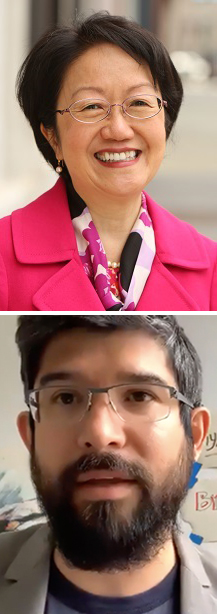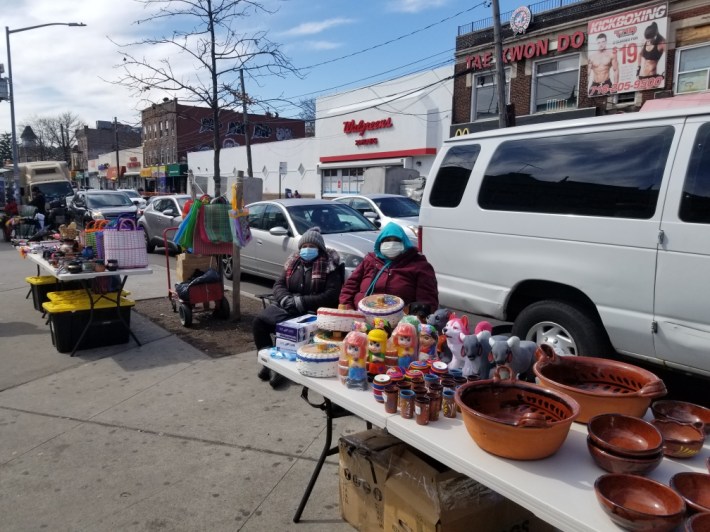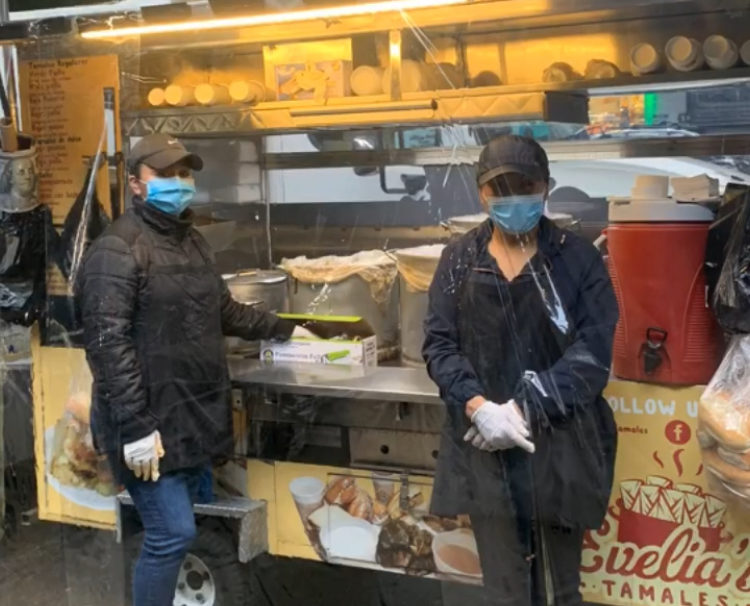In the course of a few weeks, New York City has managed to cut the red tape to help thousands of struggling restaurants and bars reopen their doors and allow them to create elaborate outdoor set-ups for diners. Streetscapes across New York City have been transformed beyond our wildest dreams. Unfortunately, street vendors, who are routinely scrutinized and punished for every inch of space they take up, were excluded from the planning process.

It’s time for the city to turn the chapter on this history of neglect and make things right by this abandoned small-business community. Street vendors are not asking for the world. They are simply asking to be acknowledged, for a fighting chance to claim their rightful space in our city’s recovery, for a fighting chance to survive.
The administration can reform this broken system and do something now by:
- Launching a small-business grant program for street vendors,
- Identifying more open street spaces for vendors who cannot sustain their businesses in their usual location due to the loss of foot traffic,
- And, finally, ending the longstanding permit cap that has forced vendors to operate in an exploitative underground market by passing Intro 1116 — a bill that would expand the number of permits to vend food on the streets and sidewalks and create a dedicated vending law-enforcement unit, which would exclusively enforce vending laws — as soon as possible. This is one tool that the administration has been sitting on for years — but could take up right now. There’s no reason to wait any longer. By passing this bill, the city would not only release new permits for street vendors to work legally for the first time in almost 40 years, but also codify the removal of NYPD from enforcement.
Street vendors have fed New Yorkers throughout the COVID-19 pandemic. It’s time for neglected immigrant street vendors to claim their space in our recovery.
At the brink of the pandemic, bustling city sidewalks turned into ghost towns overnight. And, in turn, immigrant street vendors who depended on daily foot traffic were forced out of business.
Nevertheless, they carried on. Some even scraped together whatever resources they had left to support pop-up food pantries to serve New Yorkers facing food insecurity, many of them immigrant seniors in desperate need of culturally competent food that weren’t being offered by the city’s emergency food programs.
NYC's Vendors have always been POC & immigrants for whom vending is the only way to start a biz. To this day, the City uses veiled language like 'dirty' or 'disorderly' to exclude our communities from the formal economy. @NYCSpeakerCoJo Vendors are small biz - Pass #Intro1116 pic.twitter.com/GQRmp9XKnK
— Street Vendor Project (@VendorPower) July 23, 2020
But in spite of our call to the administration to expand eligibility for small-business relief programs to accommodate street vendors, street vendors have been left to languish with zero financial support to run their businesses or feed their families.
The exclusion of this small-business community from COVID relief is only the latest chapter in a decades-old story that has painted street vendors as “annoying inconveniences” instead of dignified entrepreneurs in their own right. This is the same story that has stripped them of economic opportunities while subjecting them to excessive police interactions. The same story that has enshrined them as a tokenized symbol of New York City’s diversity while simultaneously criminalizing them for existing.

We can’t help but ask why, time and time again, street vendors have not yet been afforded the relief and respect they’ve been fighting for.
The problematic, and sometimes racialized, rhetoric used against our fight to end the unjust permit cap is not lost on us. Instead of focusing on ending the underground permit market that has forced street vendors to spend tens of thousands of dollars just for a chance to legally work, some would rather express outrage over vendors potentially “flooding” the streets.
But the recent massive success of the city’s outdoor dining program has put even that concern up for debate.
Whether it’s a Fifth Avenue hot-dog stand, a Chinatown fruit cart, or a Sunset Park taco truck, street vendors are deeply embedded in the history and cultural identity of New York City. Their work has never been easy, but they deserve relief, too. Our city has an opportunity to be part of the solution by passing Intro 1116. This is the bare minimum.
City Council Members Margaret Chin represents Lower Manhattan and Carlos Menchaca represents Sunset Park in Brooklyn.






